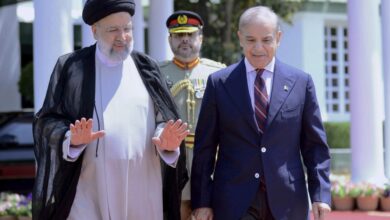BJP, Congress spar over caste census ahead of MP elections

BJP, Congress spar over caste census ahead of MP elections
The BJP and the Congress in Madhya Pradesh engaged in a heated exchange of remarks recently. The governing BJP accused its rival, the Congress, of being responsible for India’s partition, referencing the historical event that led to the creation of India and Pakistan as separate nations in 1947. The BJP also accused the Congress of attempting to sow divisions among Hindus by raising the issue of conducting a caste survey.
In response, the Congress posed a pointed question to the BJP, inquiring whether they consider OBCs (Other Backward Classes) as part of the Hindu community. This line of questioning appears to challenge the BJP’s stance on caste-based data collection and whether OBCs are included in their definition of Hindus.
Additionally, the Congress expressed support for the Bihar government’s efforts to collect caste-related data within the state. They urged the central government (the Centre) to conduct a similar caste survey at the national level. This demonstrates the Congress’s interest in obtaining comprehensive data on caste demographics across the nation.
Further, during a rally in Beohari, Madhya Pradesh, senior Congress leader Rahul Gandhi announced the party’s commitment to conducting a caste survey if they were to come to power in Madhya Pradesh. He referred to this proposed survey as an “X-ray” of the country, highlighting its potential to shed light on the condition of OBCs, Dalits, and tribals who are often marginalized and disadvantaged within society, likening them to the “injured.” This announcement signifies the Congress’s emphasis on understanding and addressing the concerns of these communities if they were to gain political power.
In Madhya Pradesh, the political arena has witnessed a heated exchange of accusations between the ruling Bharatiya Janata Party (BJP) and the opposition Indian National Congress. The backdrop for this exchange is the upcoming elections in the state, scheduled for November 17, where all 230 seats are set to be contested in a single phase.
State Home Minister Narottam Mishra, a senior BJP member, took aim at the Congress for raising the issue of a “caste census among Hindus” and questioned their selective focus. He went on to make a series of pointed allegations, asserting that the Congress, through its historical associations, was responsible for the partition of India.

In response to these accusations, the Congress’s media department spokesperson in Madhya Pradesh, KK Mishra, called for the BJP to clarify its position on whether they consider OBCs (Other Backward Classes) as Hindus and whether OBCs should be entitled to rights based on their population size. This ongoing exchange reflects the intense political rivalry and divergent perspectives on social and political issues in Madhya Pradesh as the election date draws near.
The response from the Congress leader points to a history of political maneuvering in Madhya Pradesh. The Congress leader argued that Minister Narottam Mishra has no authority to raise such questions, citing that it was the BJP that came to power in Madhya Pradesh through a strategy of “divide and rule.” This reference appears to allude to the BJP’s role in the political dynamics that unfolded in the state.
In the 2018 assembly elections, the Congress secured 114 seats, allowing them to form a government under Kamal Nath’s leadership, with support from parties like the Samajwadi Party, Bahujan Samaj Party, and independent MLAs. However, this government faced challenges and eventually fell apart after 15 months. A significant portion of Congress legislators, many of whom were loyal to Union minister Jyotiraditya Scindia, defected from the party and joined the BJP. This shift in political allegiance ultimately led to the BJP’s return to power in March 2020, with Shivraj Singh Chouhan assuming the position of Chief Minister for an unprecedented fourth term.
The reference to “divide and rule” suggests that the Congress believes that the BJP used strategies that exploited divisions within their party to regain power in the state. This history of political maneuvering and the switching of allegiances have contributed to the ongoing political rivalry in Madhya Pradesh.







